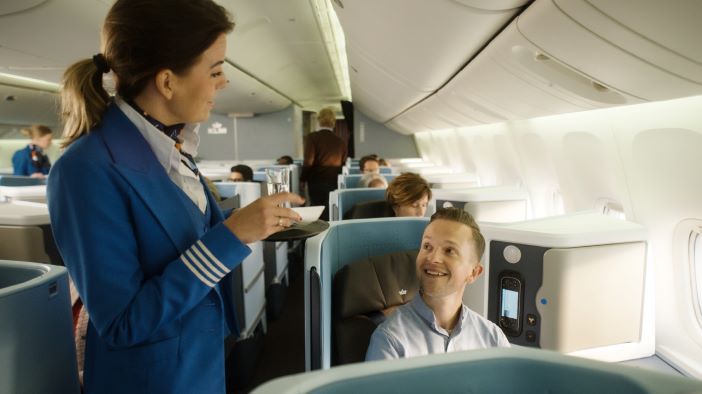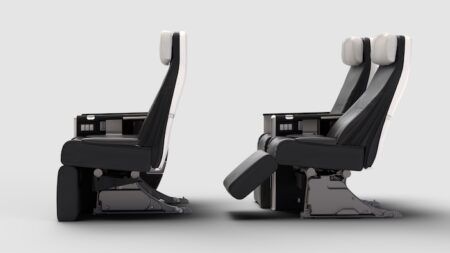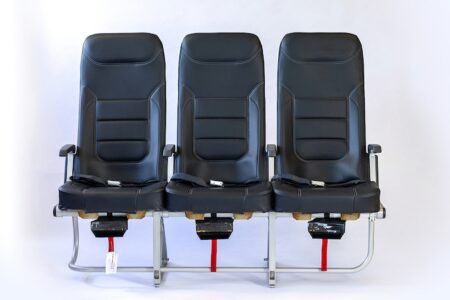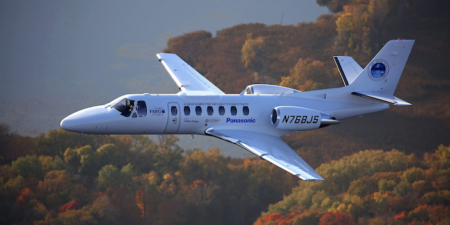Dutch flag carrier, KLM, is reducing waste in its inflight catering through the use of artificial intelligence (AI). The airline says the use of AI programs will enable it to better predict how many passengers who have booked will actually board their flight – a prediction that is not as simple as it may sound. Depending on the travel class, KLM estimates that 3-5% of booked passengers do not show up (on time) for their flight.
KLM has brought in the Trays AI model, which was launched at the end of 2023 by Kickstart AI, with development input companies including Bol, Ahold Delhaize, NS and ING, with the model specifically developed for KLM’s catering activities.
The AI model predicts the number of passengers that will be on board each flight based on historical data. The airline’s Meals On Board System (MOBS) then receives the expected passenger numbers per flight, with separate forecasts for the Business, Premium Comfort and Economy classes. The prediction using the AI model starts 17 days before departure and continues until 20 minutes before the flight departs. This means that the most accurate prediction of the number of passengers is available for the entire catering process, from purchasing to loading, thus preventing a surplus of meals being brought on board.
KLM estimates that it can achieve a saving in food wastage of up to 63%, based on the expected number of passengers per flight. On an annual basis, this amounts to a saving of more than 100,000kg of meals.
A three-month analysis undertaken by KLM to test the accuracy of the Trays system showed that the system would have enabled 63% less food to be wasted, compared to providing catering for every booked passenger. The largest improvement could be seen on intercontinental KLM flights from Amsterdam Airport Schiphol, for which 2.5 fewer meals (amounting to 1.3kg) need to be thrown away per flight. On an annual basis, this amounts to a saving of 111,000kg in meals across all KLM flights that are catered from Schiphol.
KLM is also working on the application of artificial intelligence in other parts of its business operations, such as aircraft maintenance or creating personalised travel tips for customers. In addition, AI programs are being used to simulate predicted bad weather days, making it clear in advance which schedule would allow KLM’s flights to continue normally as much as possible.





